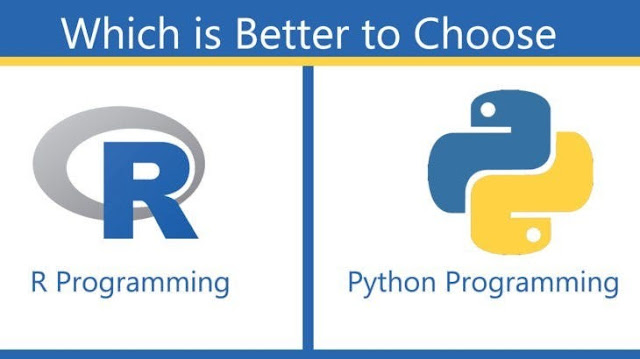Python vs. R: Which is Better for Data Science?
If you’re looking to build a career in data science, choosing the right programming language is one of the most crucial decisions. Python and R are the two most popular languages used in data science, but which one should you learn? The answer depends on various factors such as ease of use, libraries, job opportunities, and your specific goals.
In this blog post, we’ll compare Python and R based on their strengths, weaknesses, and best use cases. By the end, you’ll have a clear idea of which language suits your data science journey best. Plus, if you're looking for a Data Scientist Course in Thane, this guide will help you make an informed decision.
1. Ease of Learning and Syntax
1.1 Python: Beginner-Friendly and Versatile
Python is widely known for its simple and readable syntax, making it an excellent choice for beginners. If you’re just starting with data science, Python allows you to write clean and concise code with minimal effort. Its extensive community and documentation further simplify the learning curve.
1.2 R: Designed for Statistical Computing
R, on the other hand, is built specifically for statistical analysis and visualization. While it has a steeper learning curve compared to Python, it offers powerful tools for data manipulation and modeling. If your work involves heavy statistical analysis, R might be the better choice.
2. Data Science Libraries and Ecosystem
2.1 Python’s Rich Library Support
Python boasts an extensive ecosystem of libraries tailored for data science, including:
Pandas for data manipulation
NumPy for numerical computing
Matplotlib & Seaborn for data visualization
Scikit-learn for machine learning
TensorFlow & PyTorch for deep learning
These libraries make Python a one-stop solution for data science and AI-related tasks.
2.2 R’s Statistical and Visualization Prowess
R excels in statistical modeling and offers industry-leading visualization tools such as:
ggplot2 for advanced data visualization
dplyr and tidyverse for data manipulation
caret for machine learning
Shiny for interactive dashboards
If you’re looking for a Data Science Weekend Course in Thane understanding the strengths of both languages can help you decide which one to master first.
3. Performance and Scalability
3.1 Python: Faster Execution and Scalability
Python is generally faster than R when it comes to execution speed, especially for large datasets. It also integrates well with big data technologies like Apache Spark and cloud platforms, making it ideal for scalable solutions.
3.2 R: Optimized for Statistical Analysis
While R may not be as fast as Python in some cases, it is optimized for statistical computations. Its built-in functions for data analysis and visualization allow for quick and accurate insights.
4. Industry Demand and Job Market
4.1 Python: The Industry Standard
Python is the preferred language in many industries, including finance, healthcare, and AI-driven applications. Companies looking for data scientists often prioritize Python skills due to its widespread adoption and versatility.
4.2 R: Popular in Research and Academia
R is heavily used in academia and research institutions for statistical analysis. It remains a valuable skill in specific industries such as bioinformatics and economics.
If you’re aiming for a career in data science, enrolling in a Data Scientist Course in Thane can help you master the most in-demand skills.
Conclusion
Both Python and R have their strengths and are powerful tools for data science. If you’re looking for a versatile, industry-preferred language, Python is the way to go. However, if your focus is on statistical analysis and visualization, R is a great choice.
Ultimately, the best language depends on your career goals and the kind of work you want to do. Which one do you prefer Python or R? Let us know in the comments below!
Want to master data science? Check out our Data Science Weekend Course in Thane and take your career to the next level!




Comments
Post a Comment